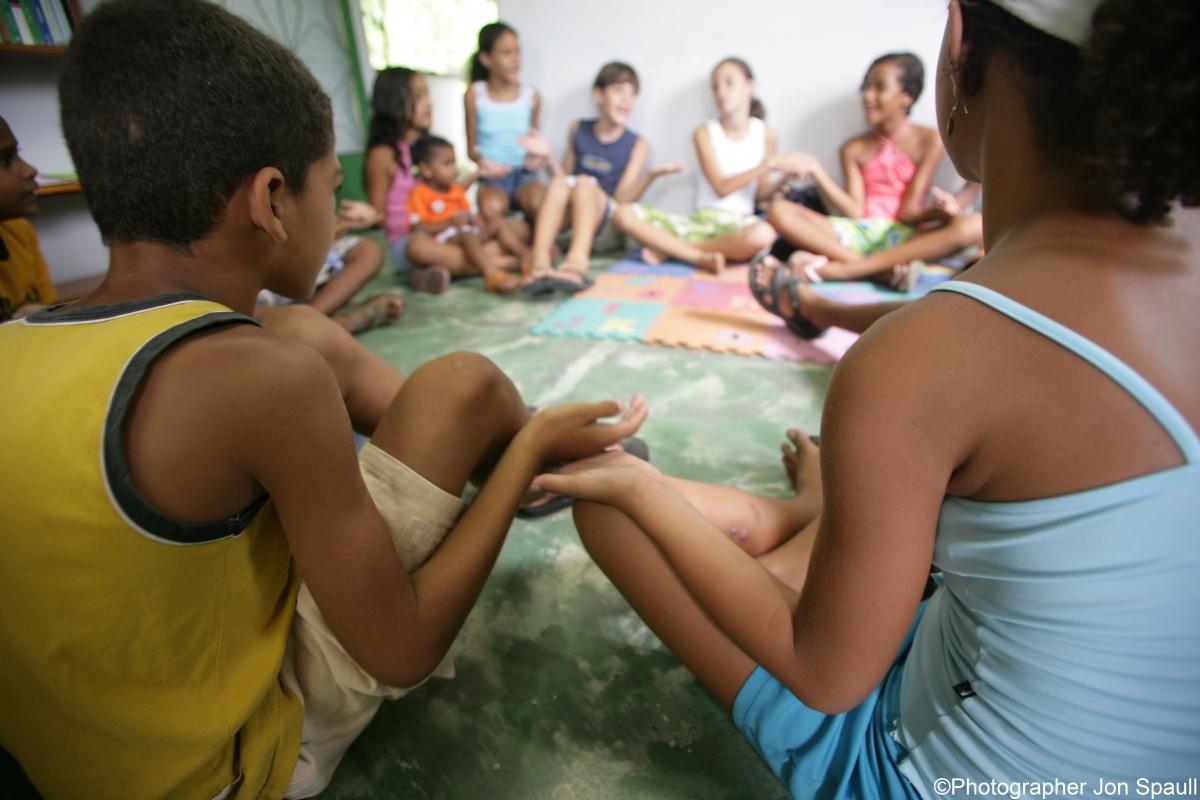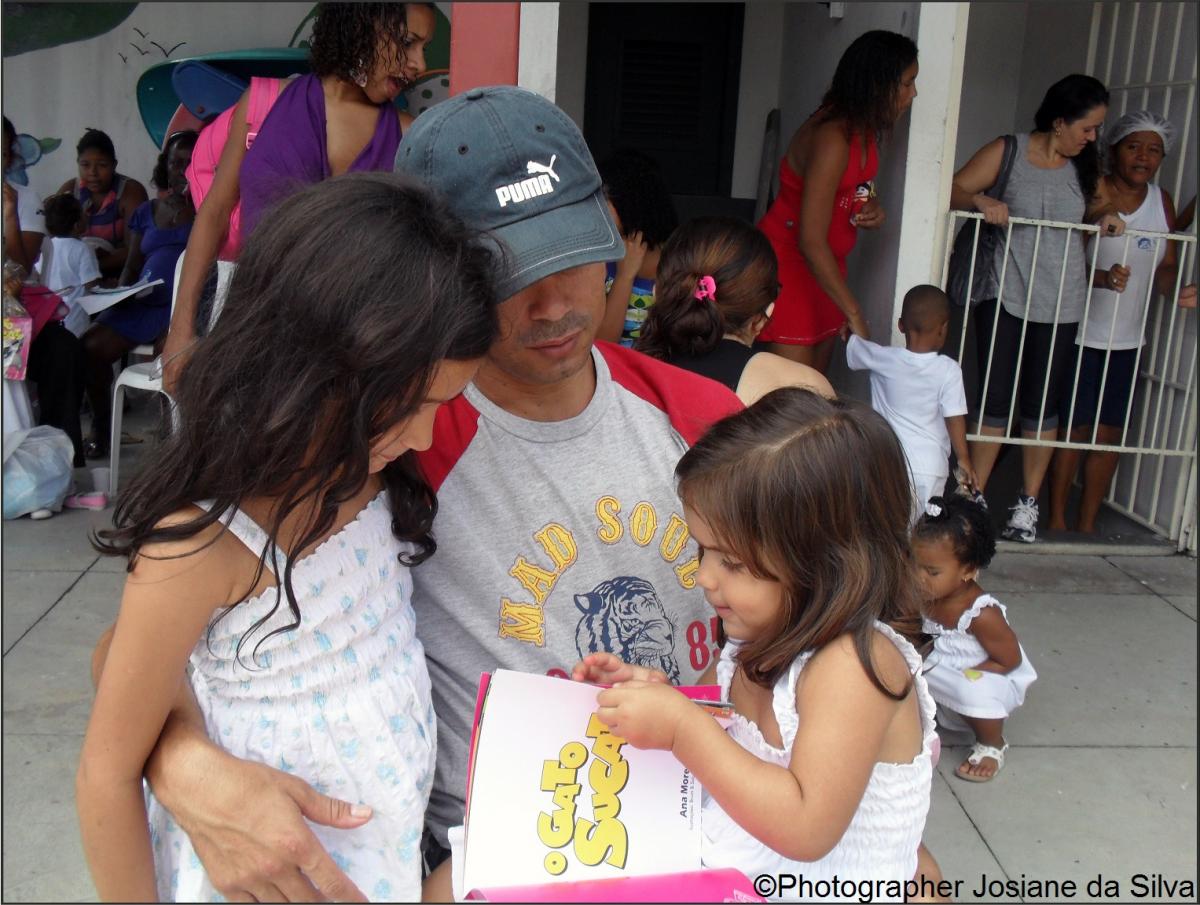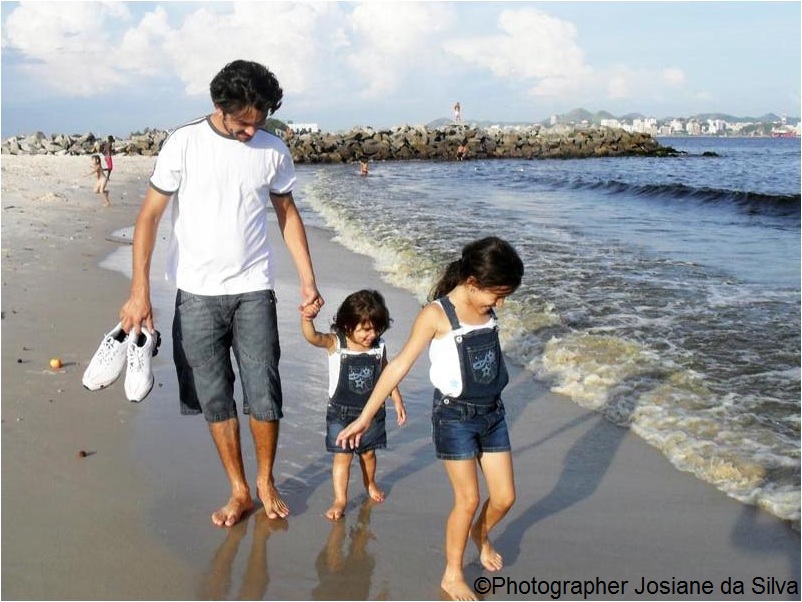 Promundo is a Brazil-based NGO that takes bold, innovative steps to promote gender equality and put an end to violence against women and children worldwide by engaging men and boys in mainstream gender discussions. Both at a local level and in the arena of public policy, Promundo works tirelessly to produce advanced research on gender issues and to help implement programs that ignite enlightening dialogue and spark positive change.
Promundo is a Brazil-based NGO that takes bold, innovative steps to promote gender equality and put an end to violence against women and children worldwide by engaging men and boys in mainstream gender discussions. Both at a local level and in the arena of public policy, Promundo works tirelessly to produce advanced research on gender issues and to help implement programs that ignite enlightening dialogue and spark positive change.
In 2009, Promundo organized the first global symposium on Engaging Men and Boys in Gender Equality—in partnership with the Instituto Papai of Brazil, the White Ribbon Campaign Canada, the United Nations Population Fund, the MenEngage Alliance, and Save the Children Sweden. Gathering together 439 delegates from 80 different countries, this first-of-its-kind event propelled several crucial issues to the forefront of public debate, including: men’s role in putting a stop to violence against women and helping to ensure women’s sexual and reproductive rights, men’s participation in the fight against HIV/AIDS, and men’s deepening involvement in child-rearing.
In summer 2010, Promundo won the Regional Prize in Nike and Ashoka Changemakers’ “Changing Lives Through Football” program, in recognition of its feature event, the Football Tournament Against Gender Violence, which took place in Santa Marta, one of Rio de Janeiro’s marginalized communities. Harnessing the famous power of football to bring Brazilians together on and around the playing field, Promundo was able to engage men and boys in fruitful debate: the tournament was open to all members of the Santa Marta community who were willing to participate in educational workshops and discussions about existing views of masculinity, men’s role in their families, gender equality, and violence against women. Alongside the tournament, Promundo also printed posters, organized music events, and worked with local newspapers in a campaign to further inform the community of the importance of challenging gender norms and stereotypes that impede women’s (and, for that matter, men’s) wellbeing and progress. This prize-winning event was only one in an array of innovative programs that Promundo has implemented since its creation in 1997.
Gary Barker, Promundo’s Co-Founder and International Director, has done extensive research on various gender-related topics, focusing especially on how the promotion of gender equality can be used as a tool for improving the health of children and their families. He advocates a holistic approach to women’s and children’s rights, as evidenced in Promundo’s vital work to enhance community support systems in Brazil. Having gained a Master’s degree in Public Policy and a Ph.D centered on the gender socialization of men beginning in early childhood, Barker went on to co-author “The Gender Equitable Men Scale”, which offers a highly innovative method of assessing men’s attitudes towards “gender-equitable norms”. This scale has now been applied both in Brazil and in 15 other countries.
1. Why did you choose to work with Promundo? What attracted you to the organization?
I co-founded Promundo in the late 1990s, after having worked with a number of other international and local NGOs in the areas of HIV/AIDS prevention and young people’s sexual and reproductive health. We constantly heard about the “negative” behaviors of men: violence, unsafe sex, lack of participation in the lives of their children, and the like, and we wanted to help to improve these situations. My colleagues and I were struck by how much we complained about men without looking at ways to constructively engage them (us!). We carried out some initial research on the issue, particularly working with young and adult men in low-income settings in Rio de Janeiro who showed signs of alternative, more gender-equitable and non-violent ways of being men. Their life stories (and our own, as men working in gender equality) were the initial impetus for forming Promundo.
2. Can you tell us about the origins of Promundo? How was it initially received by the Brazilian community? How have your programs evolved since the beginning?
Our work was grounded from the beginning in community-based organizations and community leaders in favelas (slums), who believed in the need for men to be involved in their children’s lives and to take a stand to end violence against women (and different forms of violence between men). One of the first things we did after carrying out this fundamental research was to ask many of these “more equitable men” if they wanted to work with us as community promoters.
3. What kinds of programs does Promundo implement to engage men and boys in efforts to achieve gender equality and put an end to violence against women in Brazil?

Our cornerstone activities have been group education sessions in which young men critically reflect on what it means to be men. Building on a Paulo Friere-inspired approach, we promote a critical consciousness about gender. Those sessions are in turn supported by community campaigns, which are created and implemented by young people and adults promoting non-violent and gender-equitable ways of being men. Our work has evolved to include young women as partners and also to engage parents—mothers and fathers—in working to reduce corporal punishment of children and promote gender-equitable child rearing.
We also conduct both formative and impact evaluation studies of our work. And we collaborate with partners to carry out advocacy activities—training public service providers, reaching out to other institutions that engage men and women (corporations, schools, etc.), and organizing events and dialogues with national-level government ministries to propose ways of embedding these issues in public policy. For example, we have been involved in designing the first government-supported programs for men who have perpetrated violence, and we have trained public health officials in engaging men as partners in ending violence against women.
4. Which of these, in your opinion, have proved to be the most effective? Could you share with us some of your success stories?
Engaging men and women—and particularly youth—as agents of change, and acknowledging the stories of gender equality and non-violence that exist in otherwise violent and inequitable settings has been perhaps our key effective strategy. These stories and individuals are the most powerful ways to teach others—women and men—by presenting vivid, healthy and viable alternatives. For men in particular, it helps to see that gender equality is good for men’s lives, too.
Some of our success stories have to do with the widespread, international acceptance and replication of our Program H materials and approach (or the “Man Program”, the name of this combination approach) into more than 10 languages and more than 25 countries—including the program’s adoption by ministries of health and youth in some countries.
But even more powerful is meeting up, years later, with some of the young women and men who were our first partners and who worked with us as peer promoters. We stay in touch with many of them and have had the chance to see how these young men (now not so young) are directly involved in their children’s lives (even if they have separated from the mother), and how many have gone on to achieve professions related to gender equality. One man started his own NGO to advocate for the rights of sexual minorities in Brazil’s favelas or slums—it’s the first NGO of its kind in Brazil, working with LGBT youth in slums.
5. How do you measure the social impact of your programs?
We have conducted both qualitative and quantitative impact evaluation and we’ve sought, where possible, to have accounts of the impact of our programs from both women and men. We also developed an attitude scale—the GEM Scale (Gender Equitable Men Scale)—together with a colleague at the Population Council, which is a validated instrument for measuring attitudes related to gender that has been used in Brazil and in more than 15 other countries as an assessment tool for measuring changes in attitudes as a result of community interventions.

6. Could you please tell us about Promundo’s current work on the MGEPP (Men and Gender Equality Policy Project) in collaboration with the International Center for Research on Women?
The Men and Gender Equality Policy Project was an effort to look at ways to take these community-based interventions to the level of public policy. We wanted to assess how gender equality policies look at men, and to discover whether they see men as potential allies in achieving gender equality or whether they have simplistic, “problem-focused” views of men (more of the latter was the case). But we also wanted to identify and describe policy approaches that could engage men in transformative ways to achieve gender equality. In addition to a mapping and critique of policies—and discussion of that with policymakers—we wanted to carry out multi-country research with men, to give us a more global and structural view of men and change. One part of that research is a qualitative study called “The Men Who Care Study”, which identified men in non-traditional care-giving roles in five countries and analyzed their life histories. The other part is a household questionnaire called the International Men and Gender Equality Survey (IMAGES), which has been carried out in six countries with more than 11,000 women and men to date, and will be carried out in an additional eight countries, with multiple partners, in 2011-2012. The data are providing us with more complex and nuanced stories of men and change (and men’s resistance to change), as well as identifying the factors associated with men’s practices. And a key component of all this has been interviews with women in the same settings, regarding their perceptions of men.
7. Can you tell us a little about Promundo’s involvement in co-hosting the First Global Symposium on Engaging Men and Boys in Gender Equality? What were some of the positive outcomes of the symposium?
The Global Symposium was the first global gathering sponsored by MenEngage Alliance, a network in which Promundo serves as co-founder. MenEngage is a global network of NGOs (now more than 400 in number, with regional networks in 6 regions of the world) that work to engage men and boys in gender equality. This symposium was the first occasion when many of those 400 groups came together to affirm our principles, to have dialogue with key women’s movement advocates, together reflecting on the challenges of this work, and to engage key UN agencies. Some of the positive outcomes include strengthening the network, affirming our core principles, and forging stronger alliances with women’s rights movement groups.
8. Could you please tell us about the exhibition “A Father’s Vision of Fatherhood”? What was the impact of the exhibition?

The exhibition of these photos, called “Influential Men”, provide positive images of men doing care work, engaging and supporting women and children—in short, doing the things we want men to do. The key point is that they’re not men just from the Global North; instead, the images provide a global view of men “doing gender”, i.e. engaging as allies and caregivers. One of the outcomes is that the photos have traveled widely and have been used in multiple publications. They have inspired MenEngage to begin work on a global campaign to promote men’s engagement as caregivers and as fathers which will be launched later in 2011.
9. We understand that Promundo won a regional prize in the Nike/Changemakers competition, Changing Lives Through Football, for its project in Santa Marta. Many congratulations! Could you tell us a little bit about this project and what the experience was like for the staff at Promundo and for the community of Santa Marta?
The project was born out of a search for ways to reach large numbers of men and engage them about issues they often don’t want to talk about. Most men don’t really want to talk about gender-based violence. If they’ve carried it out, they usually feel ashamed. And if they haven’t carried out, they think it’s the problem of those other men who have. It’s an issue that falls into silence. So we built it into a football league, holding matches and then, after the matches, having discussions about men-women relationships, men and violence, ending violence against women, and so on. We also published a newsletter about the tournament and wove into it those messages about gender equality. Men and women in the community responded very positively—they didn’t feel we were “preaching” to them, but instead felt that they were able to enjoy themselves while engaging in difficult discussions about how to reduce violence and promote more equitable—and happier—relationships between men and women.
10. Can you tell us a little more about the MenEngage network and Promundo’s participation in the network?
Promundo serves as co-chair of the network globally and a co-chair of the network in Latin America. In this way, we’re trying to contribute to and learn from other partner organizations who are doing similar work—sharing successes, sharing materials and approaches, and carrying out advocacy together, in effect trying to turn up the volume of our work, in close collaboration with women’s rights partners.
11. Of all the positive outcomes of Promundo’s work, is there one outcome or story that particularly stands out for you?
Having the heads of three UN agencies attend the Rio Symposium and acknowledge that Promundo’s work had inspired them to look at men in different ways, and having the UN Secretary General participate via video and praising the work: this is clearly one of our highlights. Being able to present our approaches to former President Lula in Brazil, and to government officials in more than 10 countries, was also inspiring. But, above all: seeing the young people we have worked with being interviewed on national TV in Brazil or traveling internationally to share their stories. To see them serve as ambassadors, showing more equitable, non-violent ways of being young men and empowered young women—that is what truly stands out to me.
12. What kinds of programs or legislative changes/additions do you think the Brazilian government should implement in order to improve the status of women and the protection of women’s human rights in Brazil?

Brazil has some of the most advanced human rights legislation in the world—in terms of children’s rights, laws to protect sexual minorities and laws related to violence against women, also for maternity leave (four months paid leave are guaranteed by law). It lags behind in the need to make abortion less restrictive (it is only available in the case of rape, incest, and in order to protect the woman’s life). But the biggest challenge is implementation—making the laws work, guaranteeing women’s rights, promoting more equal pay between men and women, and promoting men’s participation in care work (for example, by increasing paid paternity leave, which is currently only 5 days). We need stronger national campaigns to reduce corporal punishment of children as part of the gender-based violence prevention agenda. And Brazil needs to continue and expand its family support programs for low-income families and continue to reduce the income inequalities that intersect with gender inequalities. On all of these fronts, Brazil needs to find ways to engage men as allies in gender equality.
© Women’s WorldWide Web 2011













